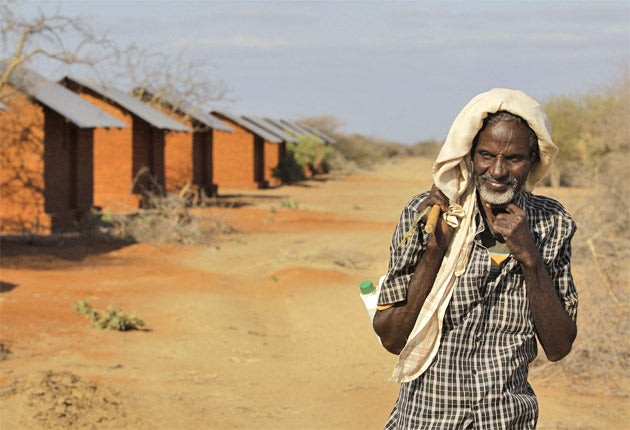UN and Kenya attacked over $60m Somali refugee camp that still stands empty

The United Nations and the Kenyan government have come in for a fresh round of criticism for the continued closure of a multimillion-pound refugee camp that has been left empty despite the deepening humanitarian crisis in the Horn of Africa.
The UN High Commissioner for Refugees (UNHCR) has been accused of misdirecting the media by renaming scrubland adjacent to empty facilities, rather than sealing a deal with Kenya to open up a camp that cost international donors $60m (£37m) to build and has been left locked since November last year. On a visit last month, the Kenyan Prime Minister Raila Odinga said the camp would be opened by 24 July.
"To the thousands of desperate Somalis arriving every day, the sight of a fully equipped refugee camp standing empty must be the ultimate rebuke," said Daniel Bekele, Africa director at Human Rights Watch. The New York-based watchdog called on the Kenyan government to immediately open up the extra camp adjacent to the existing Dadaab complex of refugee camps in northern Kenya, which now shelters 440,000 people.
Despite massive overcrowding at Dadaab, a new camp called "Ifo 2" has been left locked and empty throughout the crisis. The UNHCR's decision to relocate famine refugees to scrubland near Ifo 2 – slated for a future site – and rename the whole area "Ifo extension" has led to confused reports suggesting the new camp was in operation.
William Stirling, a UNHCR official, confirmed that the camps have "still not opened" but denied misleading the media. Further confusion has been caused by conflicting statements from the Kenyan government, which followed last month's visit by Mr Odinga when he said that Ifo 2 would be opened on "humanitarian grounds".
However, Kenya's President Mwai Kibaki reportedly told Jill Biden, wife of the US Vice-President Joe Biden, who visited earlier this week, that Somali famine victims should be helped on the other side of the border instead of flooding into Kenya. There are divisions in the Kenyan cabinet over allowing refugees to be housed in proper buildings at Dadaab with some ministers arguing it will encourage new arrivals and pose a security threat.
Humanitarian agencies at Dadaab have been frustrated by UNHCR's refusal to admit it has no agreement on Ifo 2 with the Kenyan government. "They would rather move surreptitiously than bite the bullet," complained one aid worker.
UNHCR officials have attempted to play down the difference between the Ifo 2 camp and the overflow area to where thousands of refugees have been moved. "I don't see a huge difference between the sites," said Mr Stirling who added that refugees would be accommodated in tents at either location and that water and sanitation was being provided.
Subscribe to Independent Premium to bookmark this article
Want to bookmark your favourite articles and stories to read or reference later? Start your Independent Premium subscription today.

Join our commenting forum
Join thought-provoking conversations, follow other Independent readers and see their replies